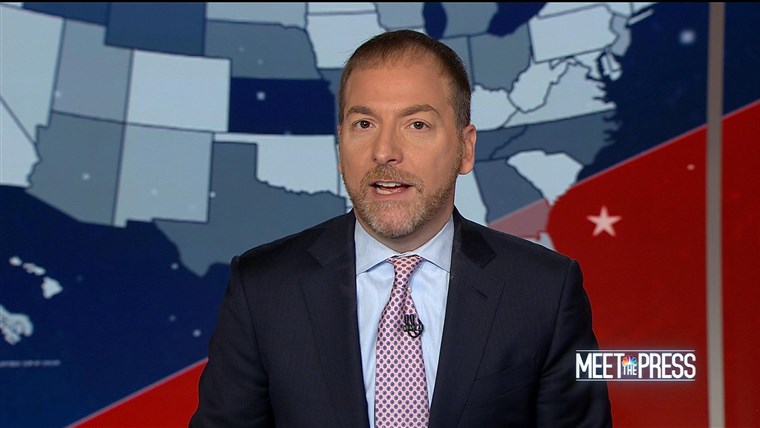WASHINGTON — The Supreme Court’s decision Tuesday to allow the Trump administration to stop the census count, coupled with the high court’s announcement Friday that it would hear arguments in a case that could leave undocumented immigrants out of the final count, have raised the already-high stakes for November’s state legislative elections that will play a large role in shaping the nation’s political battleground for the next decade.
A focus of intense efforts from both parties — aided by names like former President Barack Obama and former House Speaker Paul Ryan — the drive to win these local races has taken on even more importance as states brace for losing or gaining U.S. House seats and the fallout that comes from that.
The census findings are used to divide federal funding among states, reapportion seats in the House of Representatives and redraw congressional boundaries — a process handled by state legislatures in a majority of states and one that “reverberates for the next 10 years,” according to Tim Storey, executive director of the bipartisan National Conference of State Legislatures.
Critics of the court’s decision argue that ending census data collection amid challenges posed by the coronavirus pandemic could lead to an undercount in populations and have long-term effects on their representation — and the makeup of Congress.
State legislators can use the count to draw congressional district lines for their partisan advantage, a practice known as gerrymandering. In 34 states, the party that controls the state House, state Senate and governorship can craft congressional districts that boost its chances of winning the most U.S. House seats for the next decade. The Supreme Court declined to outlaw partisan gerrymandering last year.
“In some states, the fight for legislative control could mean the difference between a party having unfettered ability to draw the boundaries to their own advantage for the next decade or the other party having a check on their ability,” said David Wasserman, House editor for the nonpartisan Cook Political Report, and an NBC News contributor.
“In one-party states, the risk of obliteration for the minority party is quite real,” he added.
In the 2010 cycle, the last census year, Democrats lost nearly 700 state legislative seats and 20 state chambers, allowing Republicans to redraw more than four times as many congressional districts in 2011 and win more U.S. House seats than their share of the major-party vote in 2012, 2014 and 2016 — “the most lopsided redistricting process in modern history,” Wasserman said.
The National Democratic Redistricting Committee is looking to shift that balance this time. Led by former Attorney General Eric Holder and backed by Obama, the group has endorsed 200-plus state candidates and invested about $2 million into the contests.
“We need to be and are much better prepared for the redistricting process than we were 10 years ago,” Patrick Rodenbush, the group’s communications director, said.
On the other side, the National Republican Redistricting Trust is coordinating the GOP’s redistricting strategy with former Wisconsin Gov. Scott Walker’s support.
Republicans aim to maintain and grow their 59 state legislative chamber majorities while Democrats want to build on their 39, with both parties pumping in financial resources. Democratic super PAC Forward Majority is investing $15 million into the most competitive districts that “have a dramatic impact” on national politics, co-founder Vicky Hausman said.
The Democratic Legislative Campaign Committee has pledged to spend $50 million this cycle (five times its 2010 expenditure), while the Republican State Leadership Committee has touted record-breaking fundraising, including a $23 million haul in the last quarter (triple that of 2016).
Democrats’ top targets include Texas, Florida and North Carolina, which are all expected to gain one or more U.S. House seats after reapportionment and where one-party control over congressional redistricting is at risk. Texas and Florida are both GOP trifectas, while North Carolina has a GOP legislature with no gubernatorial veto power over redistricting. A state court scrapped Republicans’ congressional maps there in 2019, deeming them invalid partisan gerrymanders.
“It’s critical that we invest the money now into these state legislative races in these target states if Republicans want to have power in Washington in the House of Representatives at any point in the next decade,” RSLC President Austin Chambers said. As few as 42 legislative seats could swing as many as 136 seats in Congress, he stressed, an estimate shared by Storey, of the bipartisan National Conference of State Legislatures.
Both parties are also spending in states that don’t rely on legislatures for congressional redistricting. Arizona and Michigan use independent commissions, and even though the 2020 contests will not significantly alter the states’ maps, the outcomes still matter.
“Redistricting isn’t just about creating a lever of Democratic power in a Republican state,” DLCC President Jessica Post said. “It’s also about creating Democratic trifectas of state governments and making sure that existing redistricting processes in nonpartisan-commission states are upheld by securing levers of power in the legislature.”
Republicans are spending to protect their majorities but are on offense elsewhere in the country with party bigwigs like former Speakers of the House Paul Ryan, John Boehner and Newt Gingrich bolstering them. The RSLC is investing in Nebraska and Ohio to strengthen the party’s dominance there and in New York to install more conservatives in the legislature.
National politics are expected to trickle down-ticket this year with state candidates appearing on the same ballot as President Donald Trump and Democratic presidential nominee Joe Biden, who is regularly ahead in most polls.
Democrats have reclaimed 10 chambers since Trump was elected and believe the political backdrop surrounding the presidential election will benefit them.
“I think Republicans in the states have really tied their fates to President Trump,” the DLCC’s Post said. “The environment provides a big advantage for us because of just the absolute lack of action on Covid-19 from the Republican Party.”
The RSLC argues Trump’s momentum is on Republicans’ side and believes they can flip the 115-plus target seats held by Democrats where the president won in 2016. National Republican Redistricting Trust Executive Director Adam Kincaid said he is “actually encouraged by his ability to carry Republicans across the line” in state legislatures.


 Liz Brown-Kaiser
Liz Brown-Kaiser

